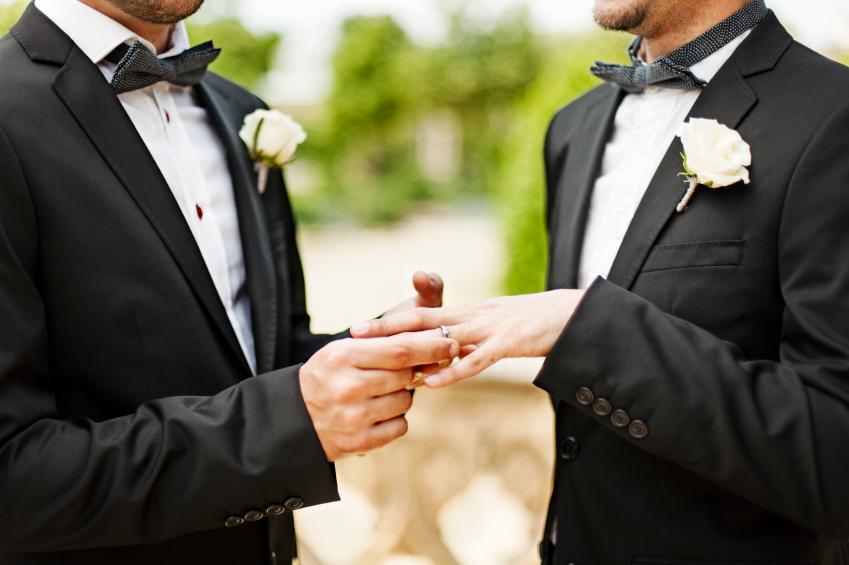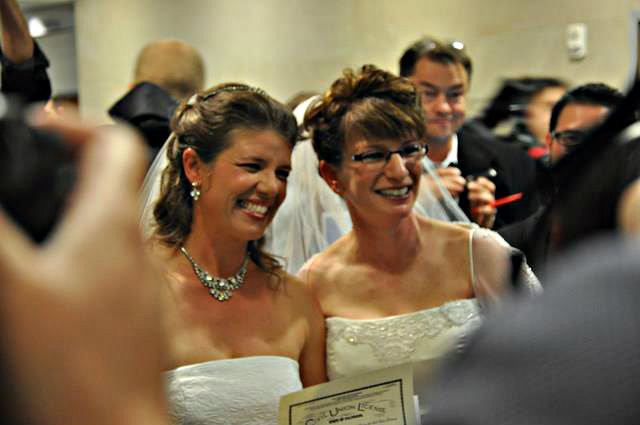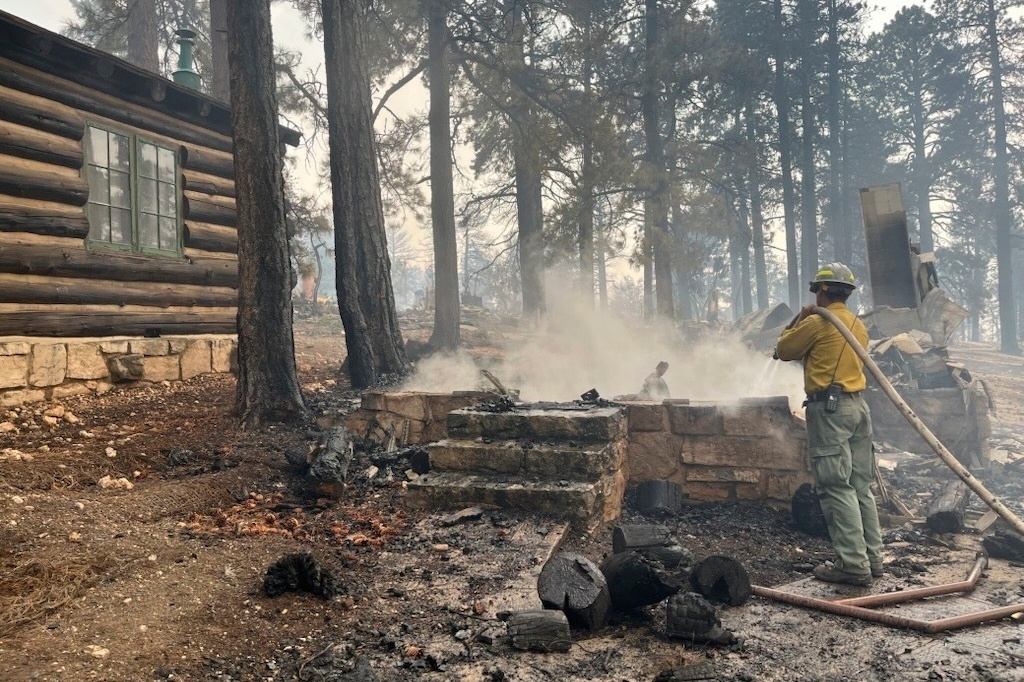

The plaintiffs' legal brief describes a diverse group of Coloradans, including a college professor, a police officer and a psychotherapist. Four of the couples have children, and four of them are legally married in other states.
All of them say they are being harmed because Colorado refuses to recognize their right to marry.
Colorado voters put a ban on gay marriage into the state’s constitution eight years ago, passing the measure by a 10-point margin. The lawsuit argues that provision violates a fundamental right to marry and the promise of equal treatment enshrined in the U.S. Constitution.
An argument based in a recent ruling
University of Denver law professor Kris McDaniel-Miccio is suit's lead plaintiff along with her partner, Nan McDaniel-Miccio. McDaniel-Miccio announced that she intended to try to overturn Colorado's ban last year, after the U.S. Supreme Court struck down portions of the federal Defense of Marriage Act.
"There's marvelous language in the majority opinion, language about how the state, whether it's a capital 'S' or a small 's,' really doesn't have the right to circumvent the idea of marriage equality," Miccio said last June. "And when you have it set up the way we have it in Colorado, that's exactly what's going on."
Neither the plaintiffs nor their lawyers were willing to talk with the press Wednesday, but University of Colorado law professor Jennifer Hendricks said having so many couples involved in the lawsuit will allow attorneys to bring up a broad range of ways in which not being able to marry affects couples.
Hendricks also notes the arguments in the legal brief are familiar from other same-sex marriage battles around the country.
"It’s a textbook enumeration of all the different constitutional basis for arguing for a right to same sex marriage," Hendricks said.
A reluctant defendant
The lawsuit formally got started on Friday, Feb. 14th, when one of the couples arrived at the Denver Clerk and Recorder's office and tried to obtain a marriage license. Denver county clerk Debra Johnson said she was given little warning of what was about to happen.
"Probably around 4:15, 4:30, something like that, is when I got a call from the City Attorney's office telling me, 'there's going to be a same-sex couple coming into your office asking for a marriage license and they're probably going to sue you, Deb, over it.' And I said, 'really?' And then they walk in at 4:45," said Johnson. "So that's how much notice I had."
Johnson, herself a strong supporter of same sex marriage, is conflicted about being named a defendant in the case.
"After many hours of consultation and legal advice [I decided] my denying the licenses would help the cause more than if I was to issue them," said Johnson. "It was a very hard decision for me."
While Johnson and her co-defendant, Governor John Hickenlooper, are on the record supporting legal recognition for same-sex relationships, the task of actually defending the state's constitution in court will fall on Attorney General John Suthers, a Republican.
While several Attorney Generals around the country have refused to defend their states' gay marriage bans, Suthers has made clear he will defend all state laws.
"What you want your attorney general, first and foremost to be, is a lawyer and a politician only secondarily," Suthers told Colorado Public Radio in 2013. "Being a lawyer means defending the laws passed by the legislature."
Colorado's marriage case was filed in state court, but could end up in the federal system, either if the defendants invoke their power to change venue or if a state Supreme court ruling is appealed to the US Supreme Court.
Federal judges have struck down similar gay marriage bans in Utah, Oklahoma, and Virginia in recent months. All three of those cases are pending on appeal.









